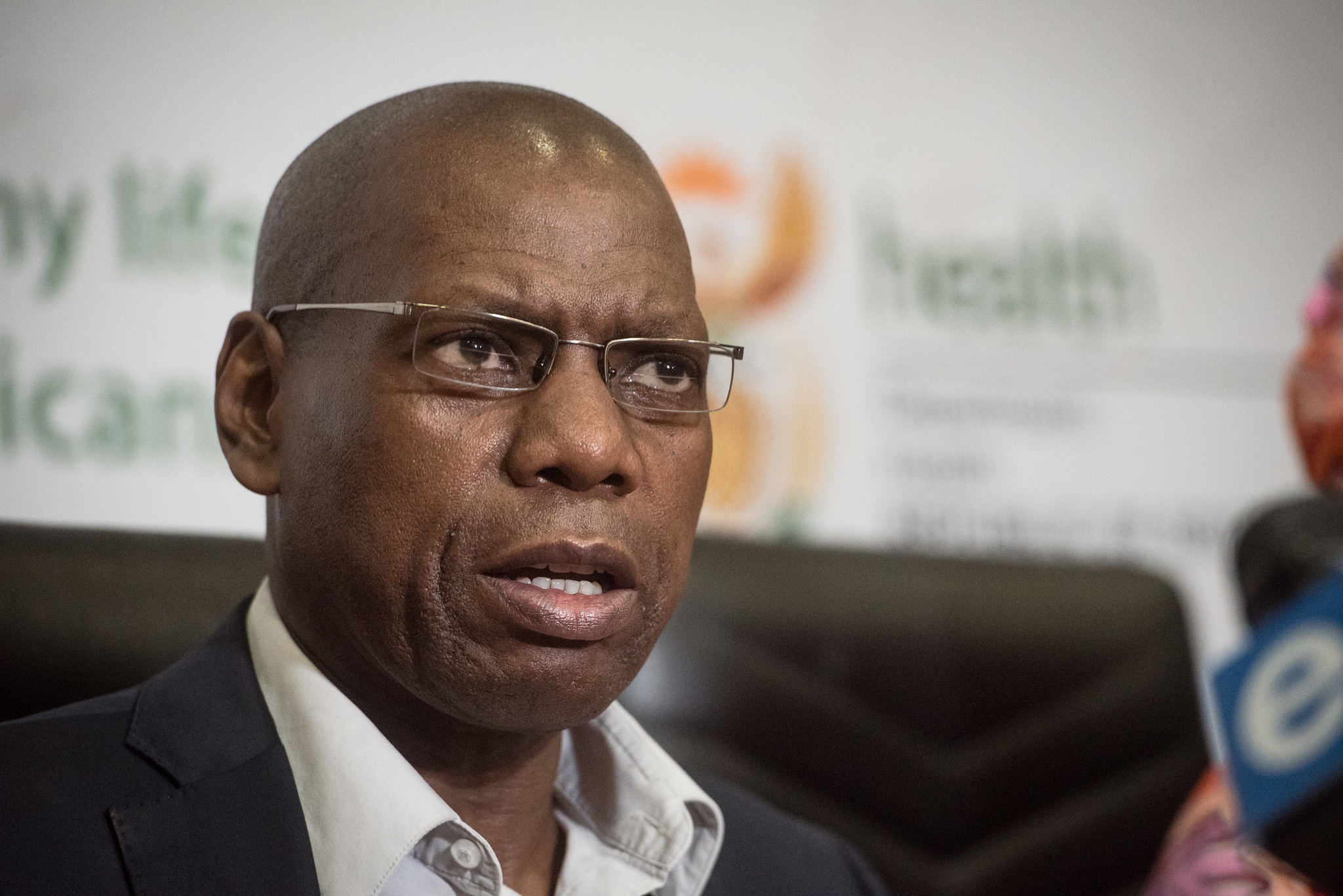The health minister has welcomed 217 Cuban doctors who arrived this week to help in the coronavirus response, adding it was now unlikely they'd remain in quarantine for two weeks.

In a media briefing on Tuesday evening, Health Minister Zweli Mkhize said that Covid-19 was still showing no signs of abating worldwide, with the US having passed the 1 million infection mark and deaths at more than 214,000 globally. Overall more than 3 million had already caught the coronavirus.
“As of today 4,996 cases have been reported in South Africa.” This was an increase of 203 from Monday.
As at today there are 4996 confirmed #COVID19 cases. The total recoveries are now 2073 pic.twitter.com/7LCfXjo0oa
— Zweli Mkhize (@DrZweliMkhize) April 28, 2020
He said 185,497 tests had been conducted to date.
There were three more deaths, bringing the total to 93.
All the deaths were in the Western Cape and they all had comorbidities.
He said hypertension, diabetes and obesity were the three most common comorbidities associated with those at risk of dying. Those above age 63 were also more vulnerable, along with people suffering from lung problems.
The South African mortality rate has been at about 1.9%, he said. Some countries in Europe had gone as high as 14%.
More than one-third of South Africans suffered from hypertension, while millions had diabetes and were overweight, he said.
South Africa also has the highest incidence of HIV and TB, putting it in a uniquely vulnerable position.
Mkhize said the reason the number of infected people was continuing to rise steadily was because of increased testing but also because people were continuing to interact in their communities even after travel from abroad was halted.
“The only risk of infection has become internal spread.”
He said people were clearly still coming into contact with each other despite the lockdown.
However, a rapid rise in cases had not continued in the same vein as had been happening at the start of the epidemic in South Africa.
“When we started, we pleaded with all South Africans to delay the spread and flatten the curve.”
He said epidemiologists had come up with three models, one being if the virus was allowed to spread unchecked and the peak would be reached rapidly, while the best-case scenario was that the peak would happen much later. A third model would have deferred the peak, but with it still coming earlier than expected.
He said the optimistic curve was to see a peak in late July or early September.
“That way we can cope, rather than be overwhelmed as the health services.
“Pessimistically, if we don’t observe distancing and hygiene, the peak could come in June or early July.”
The minister said the hard lockdown had delayed the peak by as much as six weeks.
“When we addressed the media two weeks ago, we indicated that the lockdown had reduced the spread. We haven’t stopped it. We are quite pleased with what has happened. Our model tells us even if we pushed the lockdown further, it would not have stopped the spread by much.”
He said a further extension of lockdown would no longer have had a major epidemiological benefit. The extension of the lockdown by another two weeks had, however, played a big role in slowing the spread and helping to let people get ahead with screening operations in communities.
Mkhize took issue with media reports that government had been operating off incorrect models, but he pointed out that a number of models had been considered, and a number of groups were engaged in drawing up different models.
“We are trying to look for the best possible model … as we move along. That has actually been something that we have been able to work on. The report that came from City Press that there is a loss of support for lockdown … it tends to be misleading because after five weeks there isn’t an additional need for lockdown.”
He said President Cyril Ramaphosa had made it clear that relaxing the lockdown would be the aim in months ahead.
Issues of food security and balancing the needs of the economy had always been top of mind for government, and he maintained that state decisions had been based on science and data.
While discussing the challenges around making enough personal protective equipment available for health workers, he said 133 public and 195 private sector health workers had contracted Covid-19. Some were doctors, nurses, technicians and other members of staff. One doctor who had retired in the Free State was the only fatality after he contracted the virus while travelling abroad.
“The others, we have released the distribution to the media where we have seen infections detected.”
He said the health of medical staff remained a priority, while government was working hard to ensure every registered doctor had a placement, and a call had gone out even for retired doctors to return to service. Doctors in private practice had also made themselves available to return to public service, and government would work to place them.
Mkhize said that foreign-trained doctors would only be able to start practising in South Africa once they were registered with the Health Professions’ Council of SA.
However, the state felt there would still be a shortfall of doctors, so the decision to bring 217 doctors from Cuba was a way to augment and reinforce South Africa’s health response, especially in the area of community medicine, which South Africa was weak in with its focus on hospital care, while Cuba’s health model was different and community driven, and therefore already more in line with the ambitions of the National Health Service.
“We welcome these doctors. We have allocated these doctors on a weighted basis depending on where the epidemic is hitting hardest.”
They would, however, be spread throughout the country.
Mkhize said the Free State’s recent achievements in containing the spread of the virus had given the country hope that they could repeat this in the rest of South Africa.
We have gone out to seek assistance from Cuba and China. It’s in this context we have yesterday received 217 Drs of various training and professions. They are augmenting our resources. They have a strength in community medicine and their presence is very helpful.
— Zweli Mkhize (@DrZweliMkhize) April 28, 2020
"Cuban doctors will not take anyone's post. They will be working alongside South Africans. We are also talking to some of the deans who have offered… medical students" to help. Mkhize explains that advanced medical students may join the #COVID19inSA fight.
— Bhekisisa (@Bhekisisa_MG) April 28, 2020
The minister thanked Cuba for its ongoing support to the country and the fact that it had also trained more than 700 South African doctors in a partnership between the two countries over the years.
Mkhize said it was now unlikely that the doctors would need to spend a full 14 days in quarantine in South Africa since they had already been quarantined for 19 days in Cuba before leaving for South Africa and their country only had more than 1,400 infections.
You can follow the briefing below:
For more news your way, download The Citizen’s app for iOS and Android.
Support Local Journalism
Add The Citizen as a Preferred Source on Google and follow us on Google News to see more of our trusted reporting in Google News and Top Stories.








